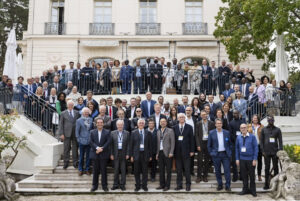
In my last editorial, I mentioned the topical issue of academic integrity, particularly with the arrival in late 2022 of ChatGPT, a conversational agent using AI.
While preparing the March edition of the newsletter, Aline suggested that I take this subject further. I asked her what she suggested: should I answer in more detail the questions that everyone is asking about the tool?
- “Is ChatGPT a danger for doctoral programmes?”
- “Does ChatGPT pose a concern for plagiarism in DBA thesis writing?”
Aline replied: “No, on the contrary! Why shouldn’t the benefits be acknowledged? Would it occur to anyone today to question the contribution of the Internet and the time and efficiency savings it generates for researchers? AI has long been part of our daily lives, whether we are researchers or not, this is just a new development. Today, with the arrival of ChatGPT, which will be followed by others soon, and Google’s conversational agent, Bard, which is already in the test phase, these gains can be further optimised in terms of productivity, access to sources, data analysis, etc. However, there is always the risk of inappropriate use of the tool.
Let’s give ChatGPT itself the final word, as interviewed by Aline: “Language processing models are not a magic solution that can automatically generate original and high-quality content. Users must always exercise critical judgment and discernment in their use of these tools and ensure that they meet academic standards of ethics and integrity”.
We are already looking at creating a Business Science Institute DBA Student Charter to promote academic integrity and encourage ethical and responsible use of language processing models in the production of research and content!
Dr. Aline
Documentary and Research support
Michel Kalika
President of Business Science Institute

